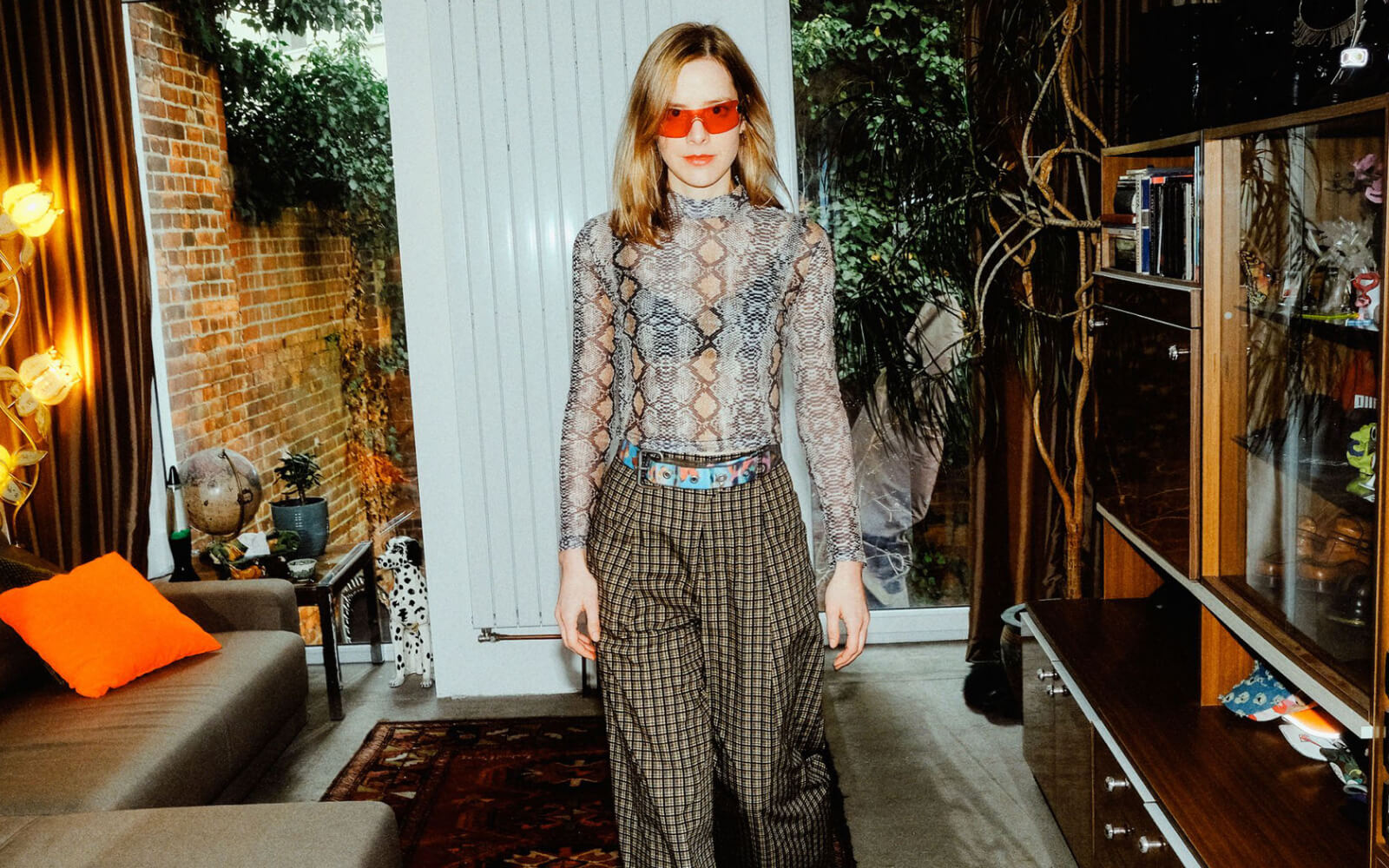By Megan Magdalena
A sold-out night at the Vogue Theatre brought Warped Tour memories roaring back.
Keeping a steady focus on her other projects which included a residency in Iran and a live concert with string orchestra Kaleidoskop, we recently spoke to Annika Henderson, who poetically described where she’s been over the last decade. “I think that life sums up what happened in between,” she captiously claims. “Music is life. Often people try and speed it up or add a catalyst to fast-forward musicians to where they want them to be quickly, but as an artist it’s quite nice to take your time and figure stuff out for yourself.”
“Music is life. Often people try and speed it up or add a catalyst to fast-forward musicians to where they want them to be quickly, but as an artist it’s nice to take your time and figure stuff out for yourself.”

After subletting her flat in Berlin during 2015, Anika joined a friend in Mexico City to work on a film and started the experimental post-punk band Exploded View. A turning point in her music career driven by adventure, the artistic pilgrimage helped her make sense of her surroundings. “Around then I wanted to quit music because I’d had enough. This happens to me sometimes but then I’m dragged back in,” she says. Anika refers to her time in Mexico City as her own DIY music residency turned musical awakening. Through connections in the local music scene, she managed to assemble a band and rehearse online for a show originally booked to help pay for her plane fare. As it would turn out, playing with this group of musicians gifted Anika more than she had ever expected. “It was as if I had finally found what I was missing in music.”
The spontaneity of her nomadic tendencies reflects not only Anika’s approach to her creativity, but her strength and ambition to hone her craft. Keeping herself motivated during the pandemic saved her, in a sense. “It definitely isn’t always handed to you, but you have to go do it and be resilient.” She continues, explaining how difficult it was to function as an artist financially and the reality that set in for those in creative scenes. Luckily, she was able to gain momentum during a period in which she saw so many around her fall. “Your whole job doesn’t exist from one day to the next. I know so many musicians who were too busy trying not to have a nervous breakdown during it.”


To the singer, Anika was merely a combination of mixing cover songs and sound experimentation with a group of likeminded people. For her latest album, Change, however, she notes how intimate the writing process became when she brought in a box of diaries, piecing together words written during the height of the pandemic. “All of this stuff had just digested in my head and had come out in my lyrics. There was so much going on at the time, whether it was the Me Too movement, Black Lives Matter, Trump in power, or Brexit.”
The result charged emotions, anxieties and empowerment forward as the recurring themes around Change. Freestyling lyrics over loops, her creative process has become a therapeutic release, one at work to unravel her unconscious emotions. According to Anika, herself and the world seemed to be cleansing itself at that time. “That was just a personal thing that I wanted to achieve. It’s like your personal demons you know – you need to slay them once in a while.”

Over the last few months, Anika has put out three music videos to coincide with the release of the new album. Working with the same individuals nearly every time, the singer finds solace in knowing who her team is. The video for “Change” in particular, flaunts Anika in a number of fashionable outfits in front of a studio background. “I’m kind of camera shy,” she reveals, stating that her eccentric designer friend Juliane König has dressed her stage outfits for many years and challenges her in ways that she appreciates. Harmonizing her connection between work and personal life, those who enter Anika’s world help propel her in so many beneficial ways. “I used to live in the back of her shop in a little room full of half of the clothes and mannequins. Our friendship is now part of the project.”
For an artist so entrenched in the subliminal design, what message, if any, does she want Change to convey to the listener? “Don’t be scared of going your own way and actually keep your eyes peeled,” she says recalling the words often repeated by her grandad. “It’s true. These days, there’s a lot of things that have been normalized that I don’t think are normal. I think it’s really important to question everything and keep shaking things up where you can.”
By Megan Magdalena
A sold-out night at the Vogue Theatre brought Warped Tour memories roaring back.
By Stephan Boissonneault
With There Is Nothing In The Dark That Isn’t There In The Light, the veteran vocalist leans into intimate, searching folk.
By Sam Hendriks
A refined turn toward clarity reveals Melody Prochet at her most grounded and assured.